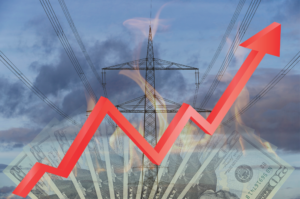Marylanders are being told that the solution to our state’s energy challenges is to “re-regulate” the market. Baltimore Gas and Electric’s new CEO, Tamla Olivier, is leading that charge, arguing that utilities should once again be allowed to generate their own power.
That might sound like common sense, but it’s anything but. “Re-regulation” in this case doesn’t mean more accountability or lower costs for families. It means giving monopoly utilities like BG&E even more power to charge whatever they want, build whatever they want, and lock Marylanders into higher bills for decades to come.
As Brittany Baker of the Chesapeake Climate Action Network points out in her recent op-ed, this plan would allow BG&E to build new power plants and add them to its “rate base”, a guaranteed profit machine for the company and its Wall Street investors. The rest of us? We just get stuck with the bill.
Let’s not forget: BG&E and its parent company in Chicago, Exelon, already have a monopoly on energy distribution in Maryland. No competition. No consumer choice. And despite their promises of “modernization” and “reliability,” Marylanders have seen nothing but rising costs. Since 2020, BG&E has increased delivery rates for electricity by 30% and gas by 50%.
Now, they want to go even further by generating power themselves and passing the costs on to you. It’s the same old story: utilities spend more, call it an “investment,” and then raise your rates so they can collect a guaranteed return.
This isn’t about solving an energy shortage or promoting clean power. It’s about padding corporate profits under the cover of regulation. The truth is, Maryland’s energy future depends on breaking free from monopoly control, not giving more of it away.
Instead of handing utilities the keys to build more expensive plants, lawmakers should focus on policies that encourage competition, expand local clean energy options, and hold monopoly utilities accountable for every dollar they charge.
Maryland can build a cleaner, more affordable energy system, but not by letting Baltimore Gas and Electric and Exelon write the rules.



